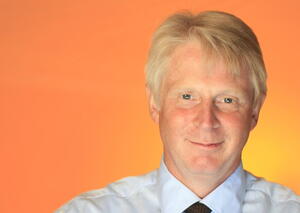We will deliver!
When the Director of the International Energy Agency (IEA), Nabuo Tanaka, came here last week to present the world energy outlook—a "reality check" as he called it—we were once more confronted with the fact that the ball is in our court. The world needs energy and hopes are on fusion to contribute sooner rather than later. So here we go ...
A hundred things are going on at the same time as we prepare for the final showdown for Baseline approval by the ITER Council in June. Scope-schedule-cost are all lining up. Only three weeks after the recent meeting of the Management Advisory Committee during which its members endorsed the schedule, we received a letter from the Council Chairman Evgeny Velikhov, giving us the green light to prepare all documentation on that basis. This paperwork and planning still dominate the scene, but there is also real action happening.
Over the last days, specialists with expertise in the assembly of tokamaks and other fusion-related devices convened in Cadarache to assess whether our approach to ITER's assembly and installation is sound and consistent with the scientific program to be executed in parallel. Impressive numbers on cables to be pulled, cryogenic connections to be made, water fittings to be applied and people to be mobilized over two shifts are being discussed with always the same questions in mind: Can it be done? Is it enough? Have we overseen something? Can we safely meet the scheduled target dates for First Plasma in 2019 and Deuterium-Tritium operation in 2026? The chairman, Rem Haange, a weathered fusion engineer in charge of installation of Wendelstein 7-X in Germany, as well as Kenichi Kurihara from Japan, Joo-Shik Bak from Korea and Charles Neumeyer from the US who have all spent a good fraction of their lives in the trenches of one or another construction project, came to the conclusion that meeting the goals is feasible. But don't be mistaken ... we will have to pool all our strengths to meet the schedule.
Another big group involving future ITER users from all around the world met this week to discuss a longer-term research program relating to the impact of the Test Blanket Modules (TBM) on ITER plasma performance. TBMs are crucial to producing large-scale commercial fusion energy, as they will produce the fuel for fusion by generating tritium from lithium. The principle is well understood but the technology will be tested on ITER. The question going around within the team of international experts pertained to the potential influence of materials on plasma confinement and performance when used to construct TBMs. R&D driven by the all participating countries will have to address this question.
With the signatures of the Architect Engineering (A/E) contract between ITER's European Domestic Agency and the consortium ENGAGE—and also the company Apave for the Health and Safety Protection Coordination and Legal Inspection Services—we have reached a point where some people should get their shovels ready. ENGAGE is determined to finalize the construction drawings as fast as possible. At the same time, excavation of the pit for the Tokamak Building will begin this summer. Design and building will go on in parallel and we have worked feverishly to finalize all documentation to give them no time to breathe. Twenty-eight 3D configuration management models plus hundreds of further drawings, process flow diagrams and interface documents are ready to be transferred. We have all been eager to see building activity on site .... and now it will happen.
Then we received word on progress in manufacturing from our colleagues in Japan. The first copper dummy conductors and also superconductors for ITER's toroidal field coils have been successfully manufactured and shipped from Nippon Steel in Kitakyushu to a Toshiba Corporation facility in Yokohama where the hardware will be stored for completion of acceptance procedure as required by the Procurement Arrangement before start of winding trials. To actually see a ship carrying hardware produced for ITER is a moving moment and I can't wait to see the first shipload arriving in Fos-sur-Mer.
And, last but not least, the final internal review to check all interfaces with the vacuum vessel was completed. As the manufacturing of ITER's vacuum chamber is staged to begin, this was an essential step for the project. At the end of May we will deliver the detailed 3D models of all nine vessel sectors and the 44 ports to the contributing Domestic Agencies in Europe, India, Korea and Russia. There, the models will be turned into manufacturing drawings by companies that have already been selected, and cutting metal will shortly follow.
More and more, the expression "time is money" becomes true. As more companies come under contract, every lost day costs about EUR 1 million. When all contracts are in place, that figure will rise to EUR 4 million per day. We can not afford to be late and we won't. We will deliver!


